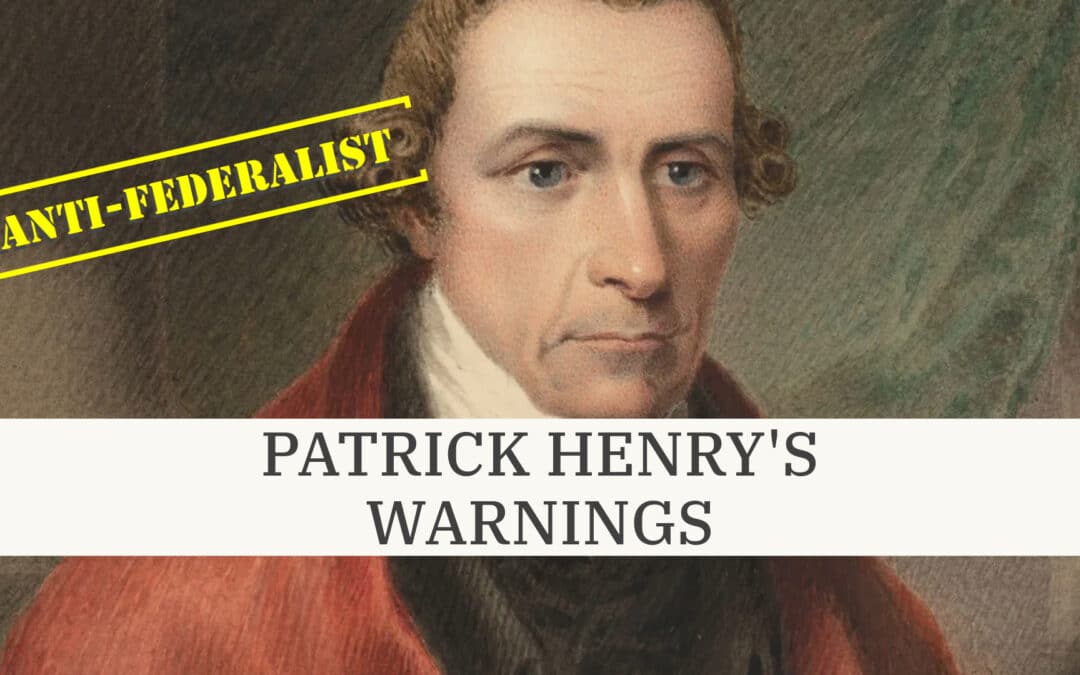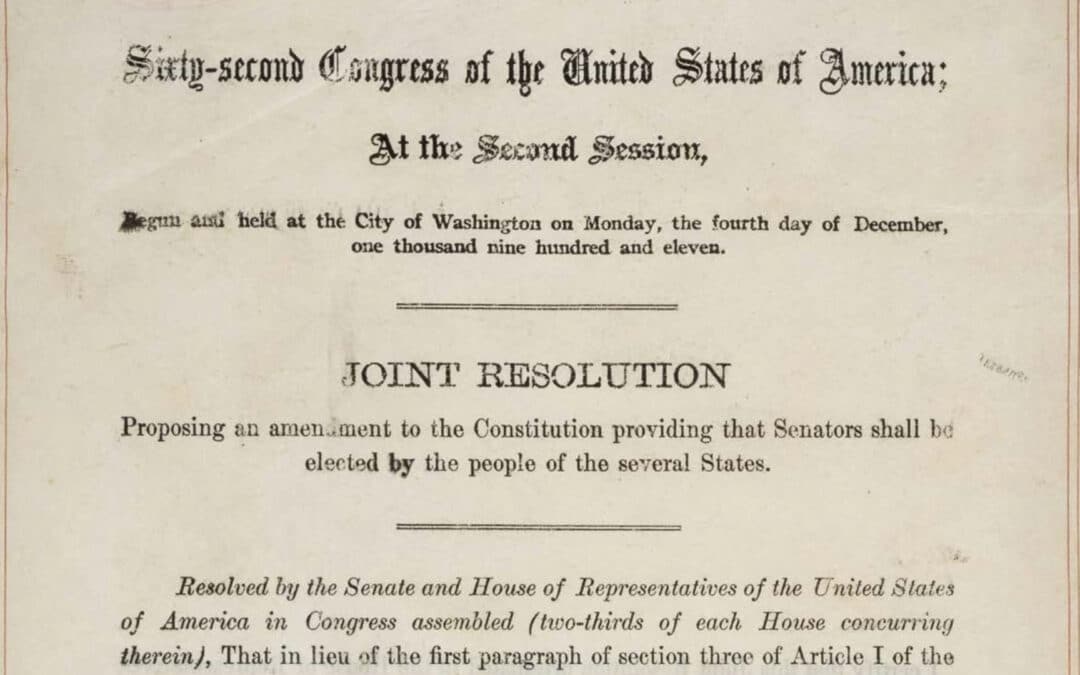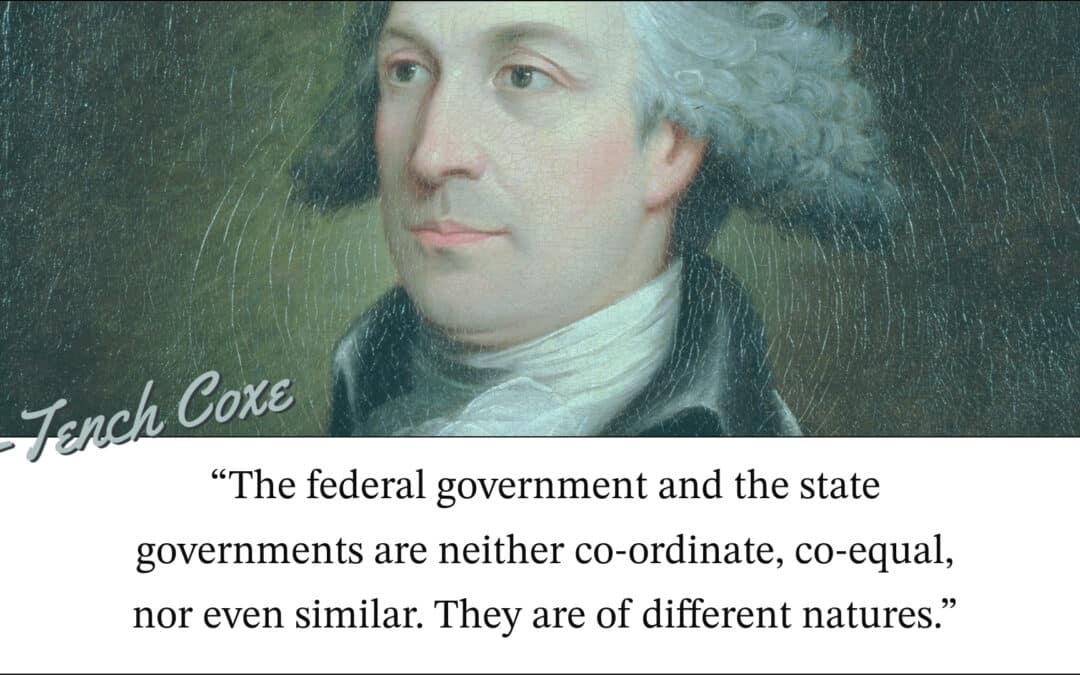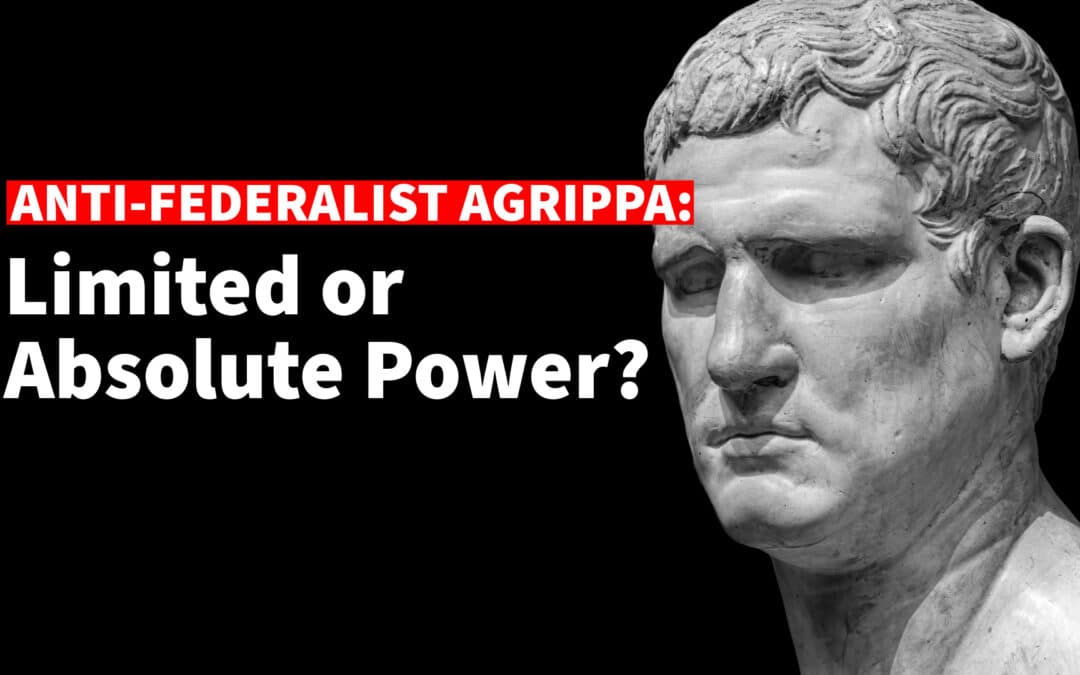


Patrick Henry: Top-6 Anti-Federalist Warnings
This government “will swallow the liberties of the people, without giving them previous notice.” That’s one of many stark warnings Patrick Henry gave us in 1788. In a series of fiery speeches during the Virginia Ratifying Convention, he laid out some of the most...
17th Amendment: How it Broke the Safeguard Against Consolidation
When the framers designed the Senate, they envisioned it as a safeguard for the states, with a key component being state legislatures choosing senators instead of the people at large. Federalists repeatedly assured the Anti-Federalists that because of this structure,...
How Tench Coxe Shaped the Ratification Debates: Essays of A Pennsylvanian
History often overlooks Tench Coxe, but he was one of the most important founding fathers. While the Federalist Papers are celebrated and widely discussed today, Coxe’s essays, written under the pen name “A Pennsylvanian,” had a far greater impact on...
